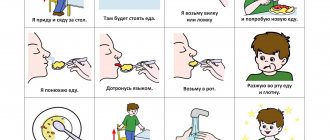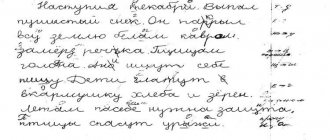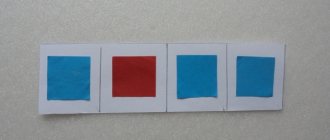How games are played in kindergarten
The required minimum competence of a teacher is the ability to distinguish didactic games in preschool age from other game forms. The teacher should know:
- structuring;
- varieties;
- database file cabinet;
- regulatory standards.
When using play techniques, the kindergarten teacher must remember that during play the child satisfies his basic needs, and masters activities, work and study. The baby grows as an individual, based on which it is very important to properly organize the game process, approach the matter with full responsibility, relying on the basis of pedagogy.
Kids are playing
Goals and objectives in different periods of childhood
It was revealed that didactic games (DI) for preschoolers solve the following learning tasks:
- learning and understanding new knowledge;
- improving mental skills;
- application of knowledge in different situations;
- formation and progress of a child’s speech in a preschool educational institution.
DI can act:
- as an organizational and training form;
- methods of education and consolidation of knowledge;
- a means of educating morality and human will.
For your information! Play action is of particular importance; its purpose is to create a play situation and mutual relationships between playing children. If it is missing, it is no longer a game, but a conversation or a didactic exercise.
Homemade DI for preschoolers of different ages
Kindergarten teachers, and mothers and fathers at home, can do a lot for their pupils. Do-it-yourself games for speech development in the middle group are no exception.
Homemade game
The goal of the classes is to ensure that the child becomes creative, able to fantasize, invent, and explain ideas. In addition, DI for preschoolers, made independently, helps to develop skills and various knowledge about the planet and environment. Also help:
- improve their ability to present consistently and coherently;
- expand your vocabulary;
- develop the thought process, memory, attentiveness;
- socially adapt.
Games have a good effect on motor skills and tactile perception.
Creating educational games yourself
You can make games yourself at home with your child. DIY activities for preschoolers can be associated, for example, with various unusual crafts. In decorations that the child will make himself, different materials are used:
- colored buttons;
- small stones;
- tubes of different lengths;
- beads;
- shells;
- cones;
- counting sticks;
- chips;
- laces;
- wire.
Looking at the material prepared independently, the child will choose to string it on a wire and make various decorations. Such games develop manual dexterity and strength, motor skills, coordination, and creativity. You can make musical accompaniment and prepare for the New Year holidays. Today, many templates and crafts for young and older children are sold.
DI for preschoolers
DIs last approximately 10-20 minutes. It is important that during this period the mental functioning of the participants does not decrease; the children find it interesting.
Important! Security must be created. This is especially important to watch out for in group events.
You cannot allow one child to be busy solving a problem while the others do nothing. A different situation is observed if the same task is assigned to all participants: they must carefully see and remember where the toys are on the table, then the teacher closes the objects or asks the participants to close their eyes and confuses the places of the objects. Players should notice the changes.
Cooperative games
Features and differences
Different age groups must be led with distinctive characteristics. In nursery groups, after the first year of life, the teacher himself tells the rules, participates, feels the object, and gives a description of the picture from the card index. It’s easy to play with younger children, you can:
- roll colored balls into hoops;
- lay out and assemble nesting dolls and pyramids;
- distinguish by voice who called “bunny”;
- pull things out of the “magic bag”.
For your information! The baby is not interested in the result of the game, he is attracted by the action itself: kicking, cleaning, carrying.
Planning on the topic “Defenders of the Fatherland” for the preparatory group
For older preschoolers, the action of the game should establish the most complex relationships between the players. The game usually involves playing a specific role. Absolute independence is required here.
The senior DI group (mainly for adult students) involves a competitive process: whoever picks up a couple faster, shouts out a word that is the antonym of what the teacher said, guesses what is suitable for a certain profession.
Important! It is necessary that competitive elements be traced: someone will win, and someone will be in the spotlight next time.








